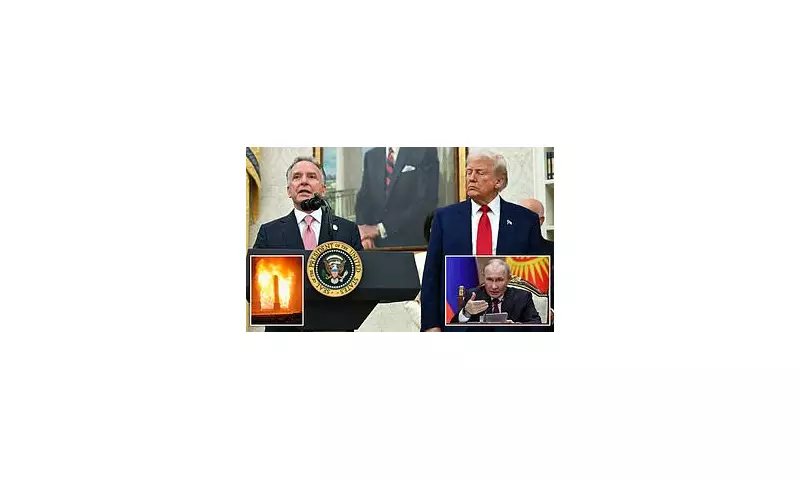
A single phone call from Russian President Vladimir Putin to former US President Donald Trump was enough to derail a pivotal American plan to supply Ukraine with long-range Tomahawk missiles, a move that would have dramatically altered the battlefield dynamics in the nearly four-year-old conflict.
The Game-Changing Weapons Denied
According to a bombshell account from Putin's top foreign policy aide, reported by the Wall Street Journal, the conversation led Trump to swiftly reverse the decision to send the powerful missiles. The Tomahawk missiles would have provided Ukraine with a capability it still largely lacks: the ability to strike deep into Russian territory, far beyond the front lines.
With an impressive range of roughly 1,000 miles and high-precision guidance systems, these missiles could have targeted critical Russian military infrastructure. This includes airbases, command centres, ammunition depots, and energy facilities that are essential for fuelling Russia's ongoing war effort—targets currently out of reliable reach for Ukraine's existing arsenal.
The Leaked Call and Diplomatic Manoeuvring
The revelation came to light through a leaked conversation, first reported by Bloomberg, which exposed the efforts of Trump's special envoy, Steve Witkoff, to facilitate rapid access for Putin to speak with Trump. This manoeuvring occurred just before a critical White House meeting with Ukrainian President Volodymyr Zelensky.
The transcript of the call shows Witkoff telling Yuri Ushakov, Putin's top foreign-policy aide, "Zelensky is coming to the White House on Friday. I think if possible, we have the call with your boss before that Friday meeting." Witkoff was clearly racing to connect the two leaders ahead of the Oval Office meeting scheduled for October 19.
In a stunning detail, the transcript further reveals that Witkoff coached the Kremlin on how to approach Trump, suggesting that Putin should praise the then-president for his role in a Gaza peace deal. Putin subsequently followed this advice during the call.
Fallout and Political Backlash
Two days before hosting Zelensky, Trump spoke directly with Putin. During that conversation, the Russian leader explicitly warned that sending the Tomahawk missiles would severely damage US-Russia relations. Trump subsequently reversed course on the missile transfer.
This episode has triggered open revolt among Republican lawmakers. Rep. Don Bacon stated that Witkoff "acts like he's on Russia's payroll" and demanded his dismissal. Rep. Brian Fitzpatrick called for Trump to allow Secretary of State Marco Rubio to handle diplomacy "in a fair and objective manner," labelling the secretive communications a "major problem."
When defending his envoy aboard Air Force One, Trump characterised Witkoff's actions as standard practice for a dealmaker. When pressed on whether his envoy was too pro-Russian, Trump deflected, stating, "No. Look, I think this war could go on for years and Russia has got a lot more people. A lot more soldiers, you know? I think if Ukraine can make a deal, it's a good thing."
The White House has insisted that Witkoff is conducting similar outreach to Ukrainian officials. However, when the Daily Mail inquired if the Tomahawk missile plan was completely off the table, the administration did not provide an immediate response.





